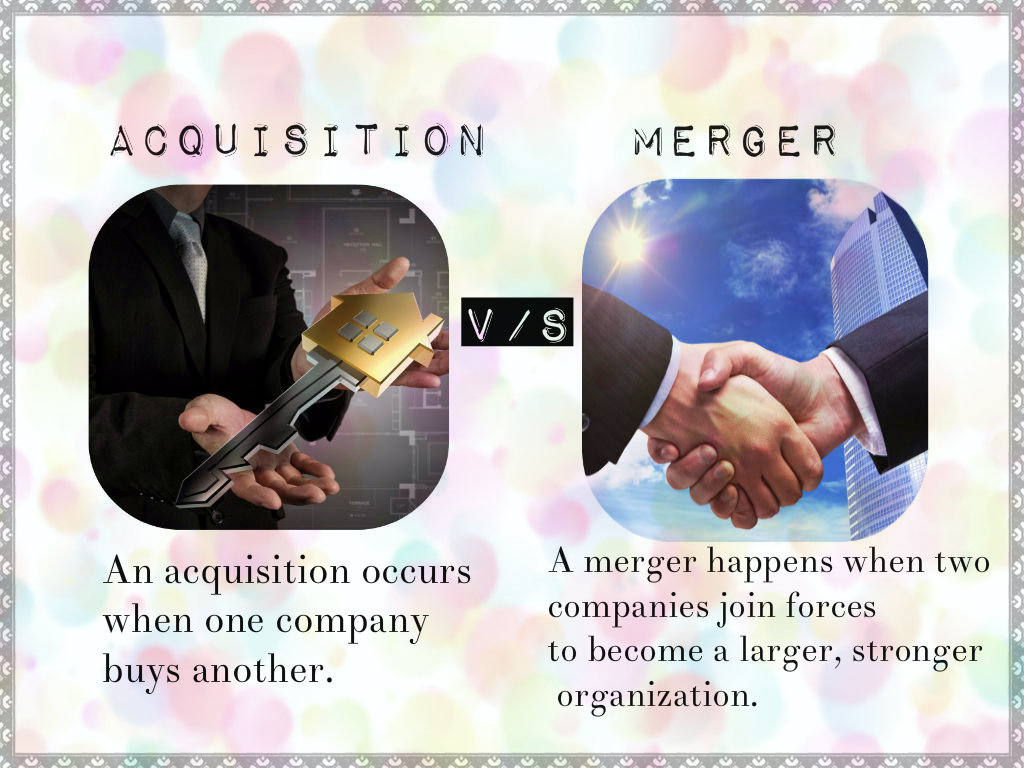Many people, including professionals, use the words “meager” and “acquisition” in the same sentence so often that it seems the two words must share meanings. A closer look shows that there is a significant difference between mergers and acquisitions.
What is an Acquisition ?
An acquisition occurs when one company buys another. If you look at the word acquisition, you’ll see that it looks very much like “acquire.” That’s an easy way to remember that an acquisition takes place when one company acquires another.
After an acquisition, the target company (that’s the company that gets purchased or acquired) ceases to exist. It becomes a part of the purchasing company.
In almost all instances, the acquisition is made by the larger company. Larger companies usually have the greater wealth and influence needed to acquire other businesses. In some cases, large companies might acquire several businesses during short periods of time. Google, for instance, acquired at least five smaller companies during April 2010.
What is a Merger?
A merger happens when two companies join forces to become a larger, stronger organization. True mergers occur when two companies of approximately the same size decide to either form a new organization with a new name, or come together with both company names intact.
When this happens, it is called a “merger of equals.” Mergers rarely happen between a large company and a much smaller one.
Nuances of Mergers and Acquisitions
The term “merger” often gets used imprecisely by companies trying to avoid negative publicity. Many people equate acquisitions with hostile takeovers. While hostile takeovers happen, most acquisitions are arranged to benefit both companies. In fact, many entrepreneurs start companies hoping that a larger organization will want to acquire them in the future.
Because of this, people often get confused by the terms merger and acquisition. Companies even perpetuate the confusion by making it seem as if a merger has taken place when in actuality one company has acquired the other.
As an example, consider the deal that allowed Google to purchase YouTube. Google clearly acquired YouTube, which is a much smaller company. YouTube’s owners, of course, were thrilled to make a lot of money by selling their startup. Imagine, however, if Google had wanted to avoid the word “acquisition” in news reporting. It might have formed a company called Google-YouTube. This would give the immediate appearance of a merger, but nothing could be further from the truth. Google would still own YouTube. It would just have a name that made it look more like a merger than an acquisition.
The differences between mergers and acquisitions can seem obscure at first, but the more experience you have with business organizations, the quicker you can tell the difference between them. Lawyers offering such business legal services shouldn’t have any difficulty spotting the difference between an acquisition and a merger of equals. Business owners and investors who struggle to see the difference might need to consult these professionals before investing money in a company.
Author Bio:
The author of the article is Jeremy Benson. He has been writing about finance, mortgage and Canadian law since 7 years. Blogging is one among his greatest passions. Follow him on Twitter@jeremybenson19.
